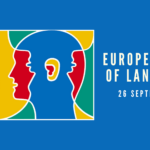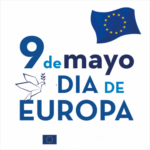World Chess Day, an ancient and traditional board game that requires great skill and mental agility, is celebrated on 20 July and is now considered a sporting discipline.
To commemorate this day, from the CDE of Almeria we have made this interactive infographic with curious facts about this wonderful sport. Do you play a game?
Why do we celebrate this Day?
This event was proclaimed by the General Assembly of the United Nations in 2019, to commemorate the creation of the International Chess Federation (FIDE) in 1924, in the city of Paris. It also pays tribute to the contribution of this great game in “the promotion of education, sustainable development, peace, cooperation, solidarity, social inclusion and health at local, regional and international levels”.
Chess
Chess is a two player strategy board game where the aim is to move different types of playing piece, each with a prescribed set of possible moves, around a chequered square board trying to capture the opponents ‘king’ piece. Today there are over 2,000 identifiable variants of the game. One theory is that an early game similar to chess called Chaturanga originated in Northern Indian Subcontinent during the Gupta period (~ 319 – 543 CE) and spread along the Silk Roads west to Persia.
Whilst modern Chess is believed to have been derived from Chaturanga means ‘four divisions’ referring either to the divisions of the playing pieces into infantry, cavalry, elephantry and chariotry (pieces which in the modern game became the pawn, knight, bishop and rook), or to the fact that the game was played by four players. Chatrang, and later Shatranj, was the name given to the game when it arrived in Sassanid Persia around 600 CE. The earliest reference to the game comes from a Persian manuscript of around 600 CE, which describes an ambassador from the Indian Subcontinent visiting king Khosrow I (531 – 579 CE) and presenting him with the game as a gift. From there it spread along the Silk to other regions including the Arabian Peninsula and Byzantium.
In 900 CE, Abbasid chess masters al-Suli and al-Lajlaj composed works on the techniques and strategy of the game, and by 1000 CE Chess was popular across Europe, and in Russia where it was introduced from the Eurasian Steppe. The Alfonso manuscripts, also known as the Libro de los Juegos (Book of Games), a medieval collection of texts on three different types of popular game from the 13th century CE describe the game of Chess as very similar to Persian Shatranj in rules and gameplay.
On 12 December 2019, the General Assembly proclaimed 20 July as World Chess Day to mark the date of the establishment of the International Chess Federation (FIDE) in Paris in 1924.
Under initiative of FIDE, July 20 has been observed as International Chess Day by chess players around the world since 1966.
The designation of World Chess Day of the UN will not only recognize the important role of the FIDE in supporting international cooperation for chess activity and aiming to improve friendly harmony among all peoples of the world, but also to provide an important platform to foster, dialogue, solidarity and culture of peace.
Chess for Sustainable Development
The United Nations recognizes that sports, the arts and physical activity have the power to change perceptions, prejudices and behaviours, as well as to inspire people, break down racial and political barriers, combat discrimination and defuse conflict, and therefore contrabute in promoting education, sustainable development, peace, cooperation, solidarity, social inclusion and health at the local, regional and international levels.
Chess is one of the most ancient, intellectual and cultural games, with a combination of sport, scientific thinking and elements of art. As an affordable and inclusive activity, it can be exercised anywhere and played by all, across the barriers of language, age, gender, physical ability or social status.
Chess is a global game, which promotes fairness, inclusion and mutual respect, and noting in this regard that it can contribute to an atmosphere of tolerance and understanding among peoples and nations.
Moreover, Chess contributes to the achievement of the Sustainable Development Goals set out in the 2030 Agenda for Sustainable Development: strengthening education, promoting gender equality, empowering girls and women, as well as inclusion, tolerance and respect.
Films, series and documentaries about chess
Here are some titles of series, films and documentaries, whose central theme is based on chess as a protagonist:
- Queen’s Gambit (USA. Director: Scott Frank. Year 2020): this interesting Netflix series goes back to the 1950s, when an orphan tries to become the best chess player in the world, while struggling with her emotional problems and dependence on drugs and alcohol.
- The Coldest Game (Poland. Director: Łukasz Kośmicki. Year 2019): An alcoholic mathematics professor is recruited by the US government to play a chess match in Warsaw against a Soviet chess player, against the backdrop of a military crisis between two world superpowers.
- The Queen of Katwe (USA. Director: Mira Nair. Year 2016): is a real-life drama based on the life of Phiona Mutesi, a young woman from Uganda (Africa) who was a chess prodigy in her country. It shows her humble beginnings in this discipline, going on to compete in the World Chess Olympiad.
- Magnus (Norway. Director: Benjamin Ree. Year 2016): a documentary about Magnus Carlsen, the world’s top-ranked chess Grandmaster. He started at the age of 13, winning the World Chess Championship in 2013, at the age of 22.
- The Fischer Case (USA. Director: Edward Zwick. Year 2014): is a biographical film set in the Cold War era. An American chess prodigy (Bobby Fischer) faces the Soviet champion Boris Spassky in the World Chess Championship, held in 1972.
- Brooklyn Castle (USA. Director: Katie Dellamaggiore. 2012): the protagonists of this documentary are 5 children, members of the best chess team in the state. They belong to school 318 located in the centre of Brooklyn, winner of several national chess championships, with a school population coming from low-income homes.
- Game Over: Kasparov And The Machine (UK. Director: Vikram Jayanti. Year 2003): is a documentary showing the masterful game played in May 1997 between Master Garry Kasparov and the artificial intelligence Deep Blue, an IBM supercomputer.
- The Luzhin Defence (United Kingdom. Director: Marleen Gorris. Year 2000): In the 1920s, a Chess Grandmaster falls madly in love with a woman when he travels to Italy to take part in the most important game of his career.
Reading recommendation
As Federico Marín Bellón writes: What do Humphrey Bogart, Miguel de Unamuno, Vladimir Nabokov, Enrique Morente and Ernesto ‘Che’ Guevara have in common? That their paths, but above all their minds, cross somewhere between a1 and h8, the squares of the chessboard. This is well known to the listeners and readers of Manuel Azuaga, an enthusiastic populariser who triumphs on the radio with the programme ‘El rincón de ajedrez’ and in the pages of the ‘Diario Sur’. Thirty of his articles form the heart of ‘Cuentos, jaques y leyendas’, a book for all audiences, without a single chess move but with the soul in black and white.
We recommend that you delve into the characters in this work, who meet and meet again on this stage and behind the scenes, a swarm of professional chess players and artists, above all, who share so many things. As Marcel Duchamp, who played for France in several Olympiads, is said to have said, “while not all artists are chess players, all chess players are artists”.
More information
https://www.un.org/es/observances/world-chess-day
https://abcblogs.abc.es/jugar-con-cabeza/ajedrez/cuentos-jaques-leyendas-libros.html?ref=https%3A%2F%2Fwww.google.com%2F





Leave a Reply